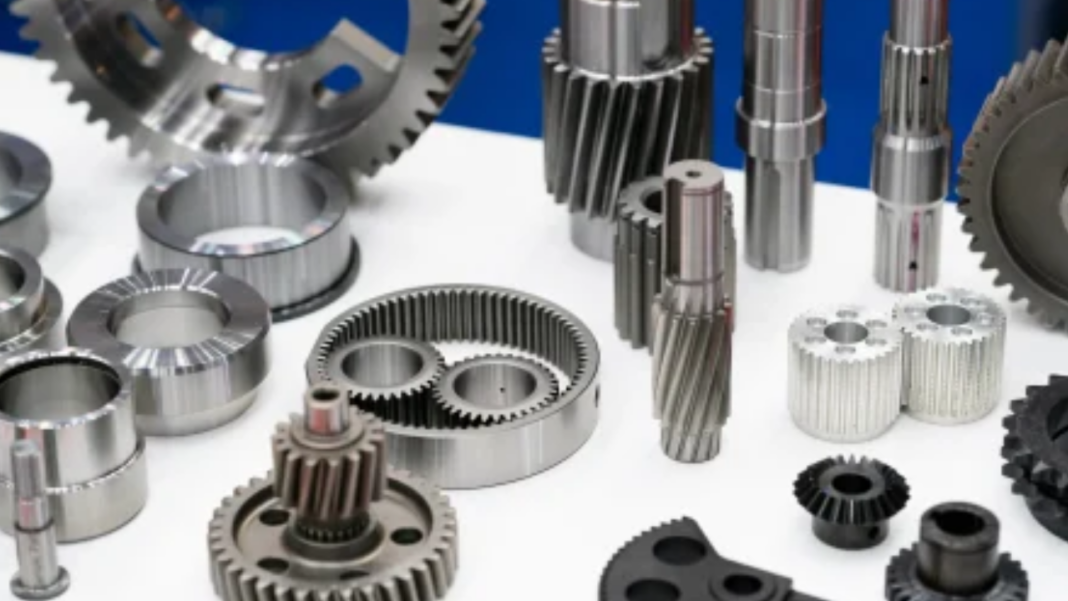Within the car manufacturing sector forged vehicle components are crucial in ensuring the dependability longevity, and efficiency of cars. With the use of compression forces, steel is formed during the process of forging to produce beautiful and durable automotive parts.
New electric vehicles are transforming automotive manufacturing and helping to create a more sustainable future for transportation. New electric automobiles offer an environmentally friendly and safer alternative to conventional inner combustion engine vehicles as environmental problems and strength performance become increasingly important concerns.
Since its inception, CxinForging has been focusing on the application of aluminum alloy, carbon steel, alloy steel machining, hot forging, warm forging, cold forging, and other methods in the industries of transportation, forestry, farming, and protecting the environment. This homepage covers the significance of forging in the manufacture of automotive components, the benefits of the forging process, and the broad array of parts that may be developed through forging.
Significance of Forge Auto Parts
The performance and dependability of cars are greatly influenced by the forged vehicle parts, including crankshafts, connecting rods, and suspension components.
The necessity of forging auto parts within the automotive sector will probably grow as technology advances and customer demand for high-performance motors rises, reinforcing their role as essential additives in contemporary auto engineering.
More Durability
Forge vehicle parts are widely recognized for their remarkable toughness and strength. The metal’s grain structure is positioned through forging, which entails heating metal to a high temperature and shaping it with controlled pressure. As a result, automobile parts have acquired greater structural integrity and can endure the strain of everyday use as well as serious riding situations.
Enhancing Productivity
The superior mechanical characteristics of forged automobile parts contribute to the improved efficiency of vehicles. Crankshafts, connecting rods, and suspension parts produced through forging have a greater load-carrying capacity and superior performance under stress, which is mainly contributing to more dependable and environmentally friendly automotive systems.
Precision and Reliability
In the production of vehicle components, forging guarantees excessive preciseness of dimension and uniformity. The method enables the introduction of parts with tightly controlled tolerances and small versions, guaranteeing excellent fit and assembling in automobile structures.
Importance of Automobiles New Energy Vehicles
The shift of the automotive industry towards a sustainable future is led by new electric cars, also known as electric vehicles (EVs) and other alternative-fuel cars. Automakers and buyers are embracing new power cars as a cleaner and more efficient alternative to regular inner combustion engine vehicles in light of the growing awareness of environmental issues and the need to minimize greenhouse gas emissions.
Environmental Advantages
Vehicles powered by new energy have a significant impact on lowering air pollution and greenhouse gas emissions. Unlike conventional petrol or diesel vehicles, EVs have no tailpipe emissions, meaning they don’t release any harmful pollutants into the atmosphere, like carbon dioxide (CO2), nitrogen oxides (NOx), or particulate matter.
Increasing Energy Source Variety
The use of new energy vehicles enables the transportation industry to diversify its sources of electricity. EVs may be fueled by using cleaner power generated from these sources as renewable energy technology, which includes solar and wind electricity, holds to improve, further reducing the overall carbon footprint of the automobile industry.
Energy Performance
Compared to cars powered by internal combustion engines, new energy vehicles are stronger and greener. There is less power wasted since electric vehicles use a higher proportion of the grid’s energy for propulsion. This improved performance helps minimize reliance on fossil fuels and increase the sustainable use of natural resources.
Final Verdict
The enhanced electricity, durability, and reliability of Forge automotive components are outstanding instances of automotive manufacturing excellence. The forging process is a preferred production method for key automotive parts due to its numerous benefits, including substance integrity, grain drift position, and cost competitiveness.








